What you always wanted to know about
the new Spanish translation of
Atlas Shrugged
(and did not know whom to ask)
–
Ediciones Deusto interviews
Domingo Garcia, translator
* * *
(ver entrevista en español aquí)
Starting May 14, 2019, the new Spanish translation of the Ayn Rand´s masterpiece is available for purchase, with the title: “La rebelión de Atlas (Atlas Shrugged)”. It is a project of Ediciones Deusto, a publisher owned by Grupo Planeta, which in 2018 acquired the rights to that and to 11 other titles of Ayn Rand´s works.
Domingo Garcia responds in this interview to questions about the new translation and about the relevance of the book.
* * *
ED : We are interviewing Domingo García, president of Objetivismo Internacional, a non-profit organization that for 10 years has been promoting Objectivism – Ayn Rand’s philosophy – in the Hispanic world. For starters, why are we doing this interview?, and why now?
DG : We are living a very important moment. In a few days, the Spanish translation of one of the most important books in history, Atlas Shrugged, will be published. And that is great news for the 500 million Spanish speakers in the world, because it is the first time that a good translation of that book is available on the market.
ED : Why is it important to them?
DG : Because this book is fundamental to the whole of Ayn Rand´s philosophy.
People are curious to know why we needed a new translation, what difference there is between this and the previous ones, and why I am the translator.
Ayn Rand has many fans, and many of them will be interested in reading the real book and in learning things about Atlas that have never been mentioned before.
ED : Okay. First of all, then, what does it mean for you to have done the translation of this important work?
DG : It has been a huge challenge and a very important project. In a way, it is the culmination of the 10 years that I have been promoting Objectivism in the Hispanic world.
ED : What is the popularity of Atlas Shrugged in the world?
DG : The original novel was first published in 1957, and from that moment on it was on the bestseller list of The New York Times 22 weeks in a row. To date, the book has sold 9 million copies, and that is only in English, not counting the hundreds of thousands of books sold in the other 30 languages into which it has been translated. And it is a book that has had a huge impact. In a survey made by the Library of Congress of the United States in 1991, it was concluded that Atlas was the second book that had most influenced Americans, second only to the Bible.
There are many celebrities who have openly declared to be delighted with the novels and the ideas of Ayn Rand, including Brad Pitt, Sharon Stone, Angelina Jolie, Jim Carrey, Jerry Lewis, Raquel Welch. The advisers of Ronald Reagan and of Margaret Thatcher influenced them to adopt more liberal economic measures. Steve Jobs was influenced by Atlas. And today, many CEOs of Silicon Valley companies, including the founders of Uber, Tesla, Amazon, Twitter, Wikipedia and others, say that they are fans of Ayn Rand´s ideas. So, if you are a fan of Ayn Rand, you are in good company.
Then there are also many “normal” people who are sympathizers of Ayn Rand and of her novels. Every day, many people, some young and some not so young, discover Objectivism, either by reading something written by Ayn Rand, or on a YouTube channel, or talking to someone else. Ayn Rand’s popularity continues to grow, both worldwide and in Spanish-speaking countries.
ED : Why is Atlas Shrugged such an important book?
DG : Because it is original. Because it is different, different in a very essential sense, because it combines philosophy and literature, because it is a work of art that seamlessly integrates a new theme with a new plot. Because Ayn Rand is a revolutionary thinker who presents a new vision of man and of the world, and presents it in the form of fiction.
The theme of the book is one that nobody had considered before: the role of the mind in man’s existence; it is the story of how the mind is the root of all knowledge and of all human values; and how its absence, the absence of reason, is the root of all evil. And the plot is summarized in the very title: Atlas Shrugged. Atlas is the mythical titan condemned to hold forever the world on his shoulders; and to shrug does not have a one-word equivalent in Spanish (we say: “encogerse de hombros”); it means that Atlas stopped supporting the world, stopped caring about it, decided to drop it, to let it fall. The plot is the story of how the men of the mind start disappearing, progressively abandoning the world and letting it meet its own fate, i.e., letting it wreck itself and sink. Before deciding on that title (Atlas Shrugged), Ayn Rand called it The Strike, because it is the strike of the men of the mind. 1200 pages brilliantly summarized in just two words.
ED : And how does Ayn Rand integrate those two things, the theme (the role of the mind in man’s existence) with the plot (the men of the mind on strike)? I mean, how does she capture, transmit and express a complete philosophy through a novel?
DG : She does it essentially in two ways: one is through its descriptions; every word, every line and every paragraph of Atlas is there for a reason, it has a meaning, there is nothing superfluous or discardable in that novel. And those descriptions show the characters – both the heroes and the bad guys – acting, living according to the ideas that they hold; you see them thinking, feeling, producing (or pillaging), loving (or hating), etc. In the book you see in a dramatic way how philosophy determines the lives of people, you see how the character of each individual is formed according to his ideas, you see the mind in action.
The other way is through what we call speeches, a very original resource and very unique to Ayn Rand, that consists of presenting abstract ideas interspersed throughout the book, either in conversations between characters, or in statements before a court, or in radio broadcasts, or even within the mind of one of the characters that is introspecting. All these speeches are perfectly integrated into the plot, they are like mini-essays on subjects as varied as money, sex, epistemology, Marxism, the morality of the businessman, and many, many others.
Ayn Rand said she was a writer first and a philosopher second; her goal was to present the ideal man in a work of fiction, but in order to do it she had to develop an entirely new philosophy because the existing ones did not serve her purpose. She wanted to create, in a fictional novel, the world in which she would want to live; and she certainly did it.
ED : How was your first contact with Atlas Shrugged?
DG : Atlas was the first book of Ayn Rand that I read; that was more than four decades ago, in 1977. I had been living in California for a couple of years, and someone told me I had to read it; I remember specifically the comment: it had «characters that one would like to meet in real life».
My initial reaction was to reply that I did not read novels, I only read authors such as Nietzsche, Bertrand Russell, John Stuart Mill, etc. But when I finally started reading Atlas, I could not stop. I had started working for IBM in San Francisco, and obviously I did not have the command of English that I have now, but I remember that that first reading was an intellectual and emotional earthquake for me; I stayed in the office at lunchtime, because I could not stop reading the novel, I felt that I was discovering totally awesome things, finding answers to lots of questions that I had not even raised before.
The first time that I read Atlas, I did it for the suspense, just to see what was going to happen, because it is a mystery novel. Since then I have read it from beginning to end more than 30 times, just for pleasure, for the pleasure of reading good literature.
ED : What exactly impressed you so much about the book? And what did you get out of reading Atlas all those subsequent times?
DG : Everything impressed me. The clarity of its ideas, the way of narrating, the discoveries that I myself was making as I read it. For example, reading that honesty is the most selfish of the virtues…, that sort of thing was shocking for me. And as I kept reading, I kept thinking that the author must have already said what she wanted to say, and that it could not be possible for her to come up with anything new; and then, on the next page, I was surprised with an idea that was even deeper and more revolutionary.
There are multiple plots within the main plot, all perfectly integrated, brilliantly interwoven, logical. I had never read any books with the literary beauty and the psychological and philosophical depth of Atlas before.
Every time that you read this book, you enjoy it in a different way. You discover new things, you make connections that you had never made before, you read something and say, «Wow, I had not noticed this before, I had not paid attention to it, how interesting.» There are many subtleties that escape you the first time that you read it, and you enjoy each reading as much or more as the previous ones. That is what great works of art are all about.
ED : People say that Atlas changes people´s lives. Is it true?
DG : Yes. It is true. It did change my life, and I know people who say that also. Personally, it made me rethink everything that I had been taught since childhood, and I mean: everything.
And I learned a lot more about economics reading Atlas than in five years of college; I learned how wealth is created (how the mind creates wealth), how competition actually works and how it benefits everyone, how inflation occurs, why there is no need for conflict between employers and employees, and a thousand other things: why democracy does not work, what is the legitimate role of government and how its regulations and controls adversely affect economic activity. One thing is to understand those things theoretically, and another one is to see how they work in practice (in a novel). I studied at the University of Deusto, which once was the most prestigious business school in Spain. But when you understand Objectivism you realize that what they teach you in college is not worth much, and I realized that most of it was wrong, for example, all the keynesian economic theories, that were taught to us as valid and true.
But it was not just economics. I learned more about psychology reading Atlas than in three intense years studying that subject. And more philosophy. And more logic. And the importance of art to man. And you gain a unique historical perspective of man. Atlas teaches you to think.
ED : So, how did we get from that first reading, more than four decades ago, to being the translator of Atlas today?
DG : Well, I will tell you. For nearly 20 years (in the 80s and 90s) I traveled around the world as a sales executive for high-tech companies, especially throughout Latin America, and everywhere I went I used to look for a Spanish translation of Atlas, because I wanted to share it with family and friends. (Remember that there was no Google in those days.)
I finally found, in Spain, one copy of the first Spanish translation; it had been published by Luis de Caralt, in Barcelona, in 1968. A few years later I met in Brazil a few Argentinian people who told me that they were finishing a new translation of Atlas. That was already in this century, and they were from the publisher Grito Sagrado, in Buenos Aires.
I was very happy because I wanted for Atlas to be discovered by the Hispanic world. When it was released, I started buying lots of books and giving them to my brothers and sisters, to my friends, even to a highschool teacher whom I had liked many years earlier, and whom I tracked down just to meet with him and give him the book.
I had hoped that Atlas would impact them as it had impacted me, that it would be an intellectual and emotional revolution for them as it had been for me. But it was nothing of that sort. Yes, they told me that they had liked it; but I could sense that it was not in the way that I had liked it, not even close. For several years, I thought that those poor people were so immersed in the culture that they were incapable of understanding the message of Atlas. But little by little I found out why Atlas Shrugged did not generate in them the passion that it had generated in me: it was because the translation left a lot to be desired.
The translators of Grito Sagrado had gotten a copy of the original translation of Luis de Caralt, and for the most part they just copied it, often incorporating exactly the same mistakes in their translation. Here is one funny example: in English, “grease monkey” means simply a “mechanic”, a maintenance mechanic; Luis de Caralt translated it as “greasy orangutan”, and Grito Sagrado merely “improved” the translation by changing the word order, translating it as “orangutan greasy” (in Spanish you can do that). It is surprising that no one realized how ridiculous and comical that translation was. And this is not an isolated instance; there are thousands of examples like that. So, discovering how poor the translations were was a huge disappointment for me.
ED : I suppose that there must be very few people who have taken the trouble to verify the quality of that translation, you may even be the only one. So, let us talk about it in some detail; it is not that we want to be negative, but we must understand why a new translation is necessary, how to justify it. Can you somewhat expand on any other mistakes that you may have noticed in the translation made by the Argentinian publisher?
DG : I agree. I do not want to be negative either, but sometimes one has to make an effort not to be. When one knows Atlas and Objectivism as well as I do, and realizes what they have done to the translation, you want to cry: sacrilege!, and I think that that is exactly what Ayn Rand would do.
There are errors of different types. One type is simply a lack of knowledge of English, nothing that an English translator should be proud of. Grapefruit means “grapefruit”, not “grape”. A corn cure is a “remedy to cure the corns of the feet”, not “an adulterated maïze-based product”. Wet Nurse means, well, “Wet Nurse”, not “Nanny”. A sob sister, according to the dictionary, is a female journalist who normally writes emotional columns, not “a sister who would not stop crying” and who appears out of nowhere. Joe Blow has a Spanish equivalent, it is not someone´s real name. Each of these errors may seem irrelevant, but it reality is not, they add up to changes in the novel, in the sense of the action, and create unintelligible or absurd situations. I cannot get into much detail here, but it does not make sense to recommend to the head of state of the country to drink grape juice to protect himself against an epidemic of colds, grapefruit is the word; and virtually every one of these translations has a similar impact.
There is another type of error, an error that reduces the force of the novel and takes the air out of its literary strength. It is a lack of sensitivity that fails to capture and to convey the literary beauty of the novel. Here are a couple of brief examples.
Toward the beginning of the novel, after describing in detail a steel mill, with its cranes, cables, buildings, the liquid metal flowing, etc., there is mention of a red flare shooting out into the sky from behind a long structure, and the description culminates in a one sentence in a single paragraph that is concise, clear and powerful: It was the first heat for the first order of Rearden Metal. But the translation takes all the strength out of the sentence, and it does so by being grammatically more complex, more convoluted, and using twice as many words: However, that flash represented the beginning of the first order of metal Rearden that the company was getting ready to deliver.
Sometimes Ayn Rand uses a well-known literary device called an “anaphora”, which consists of repeating a word or phrase to give greater sonority and rhythm to a paragraph. Before a tribunal, one of the heroes defends himself saying: I refuse to apologize for my ability — I refuse to apologize for my success — I refuse to apologize for my money. But the translators must have felt that it was superfluous to repeat the opening phrase, so they translated it as: I refuse to apologize for my suitability, for my success, or for the money I earn. (And where did they get “suitability”, and “the money I earn”?) With those changes, all you get is a work of art transformed into a mediocre novel.
Then there is a book written by one of the “bad guys”, and its title in English is: Why do you think you think?. The logical way of translating it would have been leaving the same two words also in Spanish, which would make obvious the contradiction of the title itself, and of the entire book. But no, they translate it as: “Why do you believe you think?”, taking away the strength (and the charm, if you want) of the title.
ED : The more I think about it, the more I can see that the errors that you point out are impossible to detect for the average reader, because he has no reference, he has nothing with which to compare what he is reading. The errors that you mention, both of English and of style, are not obvious until someone bothers to analize them and compare them with the original.
DG : Yes, exactly. The problem is that everyone who has read those translations believes they he has read Atlas, when in fact he has read only a “watered-down” version of the original.
But there is something more serious than that. It is the errors of substance, the philosophical errors. It is obvious that the translators do not know Objectivism, because they confuse concepts that are totally different, such as “existence” and “life”, “axioms” and “principles”, “conscience” and “consciousness”, and they mix them up whenever they feel like.
Philosophy is a science, and as such it cannot be based on vague, approximate or undefined concepts; concepts are the pillars, and they must be clear, crisp, specific. A philosophy that is as accurate as Objectivism must be supported by well-defined concepts. For example, take the difference between “conscience” (a rather mystical concept that is very pervasive in Spanish, for example “having a guilty conscience”), and “consciousness” the faculty of being aware of the world around you. “Consciousness” is a concept absolutely essential for understanding the whole philosophy of Objectivism, because it is one of its axioms. Initially the translators used exclusively the term “conscience”; and when I pointed out the mistake to them, they listened to me and corrected it in later editions, but what they did was simply to “copy and paste”, and as a result they also changed it in cases in which it would have been proper for them to leave the word “conscience”. I have three versions of the Grito Sagrado translation, one hard-cover, one paperback, and one electronic, and the mixture of those two words is all over the place.
And it not only isolated concepts that is wrong, but also complete ideas. It is not the same thing to say (as Ayn Rand writes): “contradictions cannot exist”, that “contradictions do not exist”. And in some cases the translation even says exactly the opposite of the original. The phrase: the existence of life depends on a specific course of action, is translated as: the existence of life does not depend on a specific course of action.
You can see that it is virtually impossible for anyone to have thoroughly understood the philosophy behind Atlas if he has exclusively read these translations. Not that it is the reader´s fault, simply that what he is reading is not what Ayn Rand wrote.
ED : The amazing thing is that, despite everything, a lot of people who have read those translations do like the novel and the ideas that it conveys. How do you explain that?
DG : It is because the philosophical ideas of the book are so powerful, and its plot is so interesting, that somehow they manage to convey some of the original meaning, they are the backbone that sustains those translations, as poor as they may be.
One of the obvious problems is that the translators do not strickly limit themselves to translating the original, they prefer to rewrite it. In other words, they arbitrarily change words or even whole paragraphs, or they omit or add anything that they feel like. I suppose that it is because it is basically easier to rewrite than it is to translate, because that way anyone can write anything he feels like without worrying about being precise or true to the original. And that is something that we have avoided at all costs in the new translation: we have thoroughly respected the meaning of the original, including (wherever possible) even the syntax, the punctuation, etc.
In the original, one of the heroes asks to give a message to another: “he is the only man I ever loved”; but the translators must have thought that to talk about love between men can lead to misunderstandings, so they translated it as “the only one that I feel affection for”. But “to feel affection” is not the same as “to love”. Ayn Rand said it exactly the way she wanted to say it, she used the word “love” even though she could have written something else, and that is what any translator must respect.
A few pages later, a woman tells a man: I want you, and what she means in the context of the situation is: “I desire you” (sexually). Here the error that the translators make is to rewrite it, translating it as “I love you”, but it is precisely here when “love” is not a valid term. These two examples show the need to translate exactly the original, otherwise the action, and ultimately the meaning of the novel, is completely lost. “Love” and “want” are not interchangeable at the translator´s whim. In the new translation we have been ruthlessly true to the original.
ED : Let´s talk about the title of the book. Why was the Spanish book originally entitled “The rebellion of Atlas”, while in English it is Atlas Shrugged?
DG : That is impossible to know now, because, as far as I know, those who made that initial decision did not explained why, and I don´t think that they are around anymore to answer it. I suppose that the publisher Luis de Caralt must have thought that “The rebellion of Atlas” would be a better marketing name, albeit less accurate. (I am sure that he knew what “to shrug” means).
By the way, in previous translations, the meaning of the words Atlas Shrugged is never explained. In a well-known section, halfway through the book, a hero is trying to convince a businessman to abandon his business and leave, saying: “…if you saw Atlas, the giant who holds the world on his shoulders, if you saw that he stood, blood running down his chest, his knees buckling, his arms trembling but still trying to hold the world aloft with the last of this strength, and the greater his effort the heavier the world bore down on his shoulders–what would you tell him to do?”. And when the businessman says that he does not know what to say, the hero suggests: “to shrug”. The Luis de Caralt translation says “to give in”, and the Grito Sagrado translation says “to rebel”. But Atlas neither gave in, nor rebelled, Atlas simply “shrugged”. (There is a post in Objetivismo.org in which Ayn Rand herself makes that point).
ED : But is it not true that, in fact, a title like “The rebellion of Atlas” is more forceful and intriguing than “Atlas Shrugged”, especially in Spanish, where you need more words: “Atlas se encogió de hombros”?
DG: No, not at all. People are used to hearing “The rebellion of Atlas” and thus it seems normal to them, but if they had heard “Atlas Shrugged” from the beginning, even in Spanish, they would be used to it by now. A translation needs to be exactly that, a translation, not an arbitrary reinterpretation in order for something to “sound better” or to have “more impact”. Those two words, Atlas Shrugged, form a sentence, with a subject and a predicate, and they brilliantly summarize the whole plot of the novel.
ED : And yet, the title of the new Spanish translation remains “La rebelión de Atlas”.
DG : Yes, because to change the name now would imply that it is a different book, not just a better translation of the same original. The publisher could have done it; in fact, the book was published in Portuguese under two different titles, first called “Quem é John Galt?” and then called was “A revolta de Atlas”. In our case, the editors decided to continue using the previous title, although they accepted my suggestion to add (as a subtitle) the name of the original English title. So, the title of the new translation is “La rebelión de Atlas (Atlas Shrugged)”, like that, in parentheses, as you can see in the book cover.
ED : Let’s talk about the new translation. What does it consist of? In what sense is it different from the previous ones? How does it correct the previous mistakes?
DG : Technically, we cannot say that the new translation “corrects” past mistakes, because it was done completely from scratch; of course, the past errors have been corrected, but only indirectly.
If there had been no defective translations, we would not even be talking about the subject; ours would simply be “the translation”, period. The only thing that I can say is that we know English well, we have the sensitivity necessary to maintain the literary power of the original, and we know philosophy thoroughly. Those have been the starting points. And we have applied our best efforts to the translation, often giving a lot of thought to certain expressions until we reached a satisfactory solution.
The title of a chapter, for example, is “White blackmail”, in which Ayn Rand uses a play of words, since “blackmail” has the word “black” in it. But we were not satisfied with translating “white” as “blanco”, because that word in that context means absolutely nothing in Spanish (and there is no play of words). We gave it a lot of thought, analyzing the expression in detail. In the end, since it is blackmail done by the government, we translated it as “Chantaje con todas las de la ley”, which is something like: “Blackmail with the whole sanction of the law”, which is a very meaningful Spanish expression and responds much better to the real meaning of the title. And there are many other examples like that, examples that make our translation much more faithful to the original.
There is a very important speech that takes about 60 pages of the book (whoever has read any version of the novel knows what I mean), in which one of the heroes addresses the world and uses, as expected, the pronoun “you”, which, as everyone knows, is used for both the singular and the plural. For some reason, the translators unnecessarily raised the a-priori issue of whether they should use the singular Spanish form (“tú”) or the plural form (“vosotros”). So, when the speaker says: “I am speaking to whatever living remnant is left uncorrupted within you, to the remnant of the human, to your mind…”, then he is obviously speaking to an individual (“tú”). However, when he says: “There is a difference between our strike and all those you’ve practiced for centuries”, then he is obviously speaking to a group (“vosotros”). There is really nothing to decide, one just needs to understand something as basic as the fact that “you” in English can be translated both as singular or as plural, depending on the context. Unfortunately, Luis de Caralt used exclusively the plural; and Grito Sagrado used exclusively the singular, and those decisions forced both of them to juggle words in ridiculous ways in order to try to wriggle out of (and they never quite succeed at it) the nonsensical situations that they themselves create.
ED : Who were the translators in your team? And how long did it take you to complete the translation?
DG : I am the main translator, and I assume any errors that may come up. Several individuals made valuable contributions, correcting my initial draft, pointing out obvious blunders and things that sounded weird in Spanish. It has been a huge project, because it is a very large book with literary expressions that are precise and brilliant.
Our approach was to do the work in two main steps: the first one was to translate the original as literally as possible, and the second one was to improve the initial translation, ensuring that it would be absolutely clear and sound well in Spanish. But our main goal was always to maintain the meaning of the original, to maintain the sense of life that Ayn Rand transmits in the novel.
The project took six intense months of work, and it did not take longer only because I was able to use several sections of the book I had already translated in previous years (many of the speeches, including the 60-page speech that I mentioned earlier).
ED : And are you satisfied with the result?
DG : Yes, very satisfied — and very proud. It has been a very profound personal experience for me. I have gotten to know Atlas even more closely, and it is an amazing feeling to find yourself inside the mind of Ayn Rand, analyzing every word that she wrote, every idea that she presented. It has been a fascinating project.
ED : And another thing. Does the translation use a “universal” Spanish language? Because there are people asking that question.
DG : No, because there is no such thing as a “universal” Spanish. Every Spanish-speaking country and each region within each country has its own idiosyncrasies, its local vocabulary and its local expressions. It is impossible to write anything and expect that each reader will feel that it was written with all the nuances of his mother tongue. But, to answer your question more concretely, we have used Castilian Spanish, and we have tried to avoid the use of local idioms, so that the text is as generic as it can be, and should be perfectly clear and understandable to anyone.
ED : Can you say that this is the “perfect” translation?
DG : No, certainly not. In part, because it can always be improved. But more importantly, because a “perfect” translation does not exist; if you know Objectivism, you know that there is no such translation in a Platonic world, in an ideal world, there is no perfect translation there, waiting to be discovered for us, something that we have to reach. That is an invalid concept.
A translation will never be the same as the original, but within the limitations inherent in any translation, ours is very good, because it accurately conveys the meaning of the original and maintains its literary power. In that sense, it is the first translation that does justice to Ayn Rand’s masterpiece.
Someone left a comment a few years ago in Objetivismo.org, comparing a translation that he had read before reading mine, and he said that it was something like watching a movie on an old television set, in black and white, with interferences, etc., and then watching the same movie in a modern movie theater, in technicolor and Panavision and quadraphonic sound. It was a compliment that sincerely flattered me, and I will be flattered again if the people reading the new Spanish version of Atlas think and feel something similar. Although I must add that between my translation and the earlier ones there are differences not only of quality and color and sound, but also of essence; so, it would be more like seeing the complete movie, the real one, the director’s cut.
ED : Changing the subject somewhat, how was your experience with Ediciones Deusto?
DG : Very positive. I think that it is the best publisher that exists today to print and market the works of Ayn Rand in Spanish. It was great to see that they understood the need to go to market with a good translation. And I am sure that they will add the other two ingredients necessary for Atlas to get the recognition and the penetration that it deserves: good distribution and good marketing. They have done a great job with this printed edition, they have produced a beautiful hardcover, and, all things being said, at a very affordable price, which is a key element for our markets.
I want to mention that, in addition to Atlas, there is another book that I have translated: Objectivism: The Philosophy of Ayn Rand, a book by Leonard Peikoff which presents in a systematic, logical and structured way the whole philosophy of Objectivism. I recommend it to anyone who wants to seriously understand that philosophy from a more academic perspective, because it is one of the few books of Objectivism that so far has been accurately translated, and it is available on Amazon in eBook format.
ED : How do you expect that this new translation of Atlas will be received?
DG : I expect it to be a huge success, I expect it to sell hundreds of thousands of copies. People need new ideas, rational ideas to deal with the problems of the world, and that is precisely what Atlas provides. The sales of Atlas rose dramatically during the economic crisis of 2008-2009, precisely because the book somehow predicted the crisis and the reasons that led us to it.
In addition to that, Atlas has its success assured because, in addition to being a most entertaining novel, it changes the lives of people, it impacts them in the most intimate and personal way; it is a book that gives the reader a new view of the world, a vision of man as a heroic being. It is a book that not only allows you to better understand the politics and the culture around you, but also helps you to know yourself better, it helps you to think better, to make more sense of everything, to be happier. Personally, I cannot imagine my life without Objectivism, starting with that first reading of Atlas more than 40 years ago. And many people feel the same way; there is nothing out there comparable to the sense of life that Atlas transmits.
ED : And yet, there are people who still criticize Ayn Rand, and specifically her masterpiece. Why?
DG : Because Ayn Rand is a revolutionary thinker, and revolutionary ideas have always been and will be criticized throughout history. The harshest criticism came just after the publication of Atlas, in 1957. They called her everything, even a “nazi”. In comparison, the current criticisms seem ridiculous, they just look like a bad joke, and all they are is an expression of hatred.
Many of those who now criticize Objectivism do so in part because others criticize it, because they blindly follow what others say. Most of them have not delved into that philosophy; if they did, if they really did, they would realize that it is a philosophy based on reality and reason, and against such things no discussion and no criticism are possible. People may not realize it, but they are immersed in a culture that has lasted more than two thousand years, and it is hard for them to come out of that mystical, altruistic and collectivist inertia.
And there is another reason: Objectivism requires that each individual accept to think for himself, it requires that each individual assume responsibility for shaping his own character, for his actions, for his life; and that is something that many people find difficult to do; many prefer to coast, they prefer to have someone tell them how to live, what to believe, how to act.
ED : So, you do not think that Atlas is for everyone …
DG : It should be, but not everyone will read it and will understand it the same way, or will accept it. One must have a minimum of intelligence to understand its plot and its subtleties, one must have a minimum of sensitivity to appreciate and enjoy its literary beauty, and not everyone has that sensibility, or does not allow himself to have it.
And one must have a certain honesty to recognize that what Ayn Rand says is true, something that is only achieved by looking at reality, by thinking for himself, without accepting the authority of others. Objectivism is not a rationalist philosophy to be discussed abstractly in academic environments. It is a practical philosophy that tells you how to know reality, how to set your goals and how to achieve them, how to be happy. It is a philosophy for living on earth, as Ayn Rand put it. Reading Atlas may be the first step (it was for me), but after that each individual must have the courage to explore deeper into that philosophy and apply it to his daily life, and that requires effort, no doubt. It is worth in every way, of course, but it requires a personal effort, an individual effort.
ED : Do you have a final message for anyone interested in Atlas?
DG : Yes, I do: do yourself a favor and read the new translation, because it will be like reading the original for the first time, it will be a unique intellectual and emotional experience. Buy the book now, because it can be best 25 euros that you have invested in your life.
ED : Thank you very much.
DG : Thank you!
* * *
[Interview conducted on May 10, 2019]

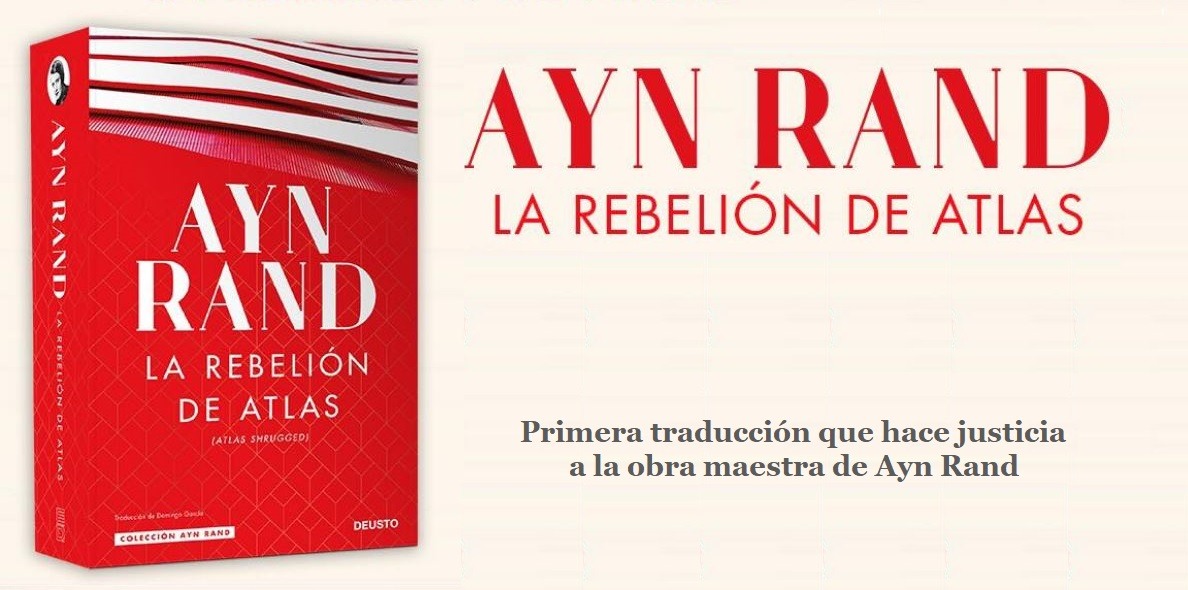
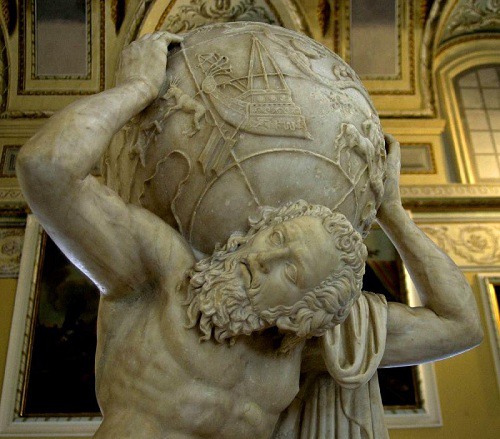
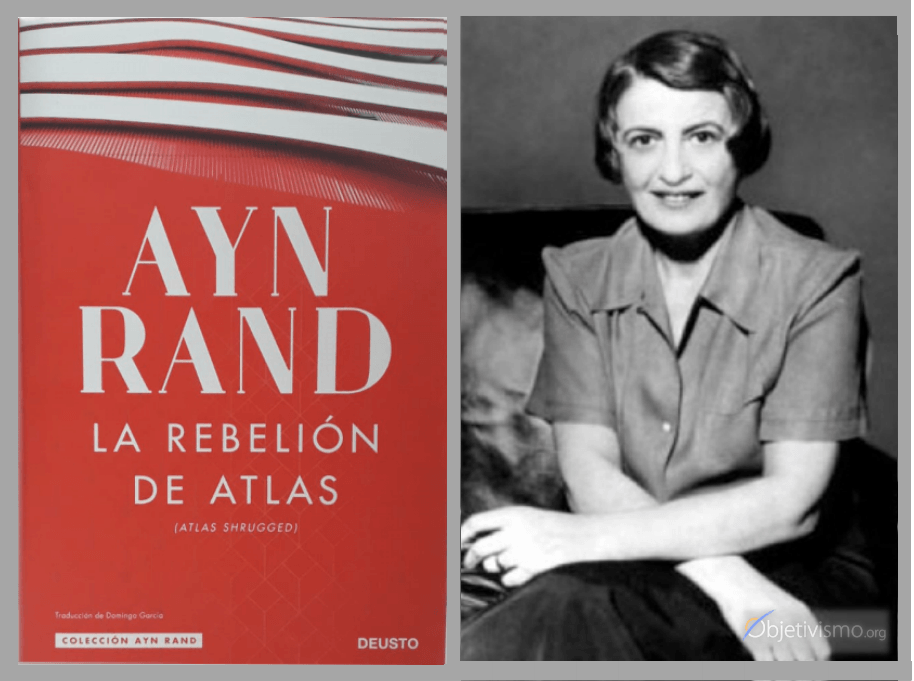

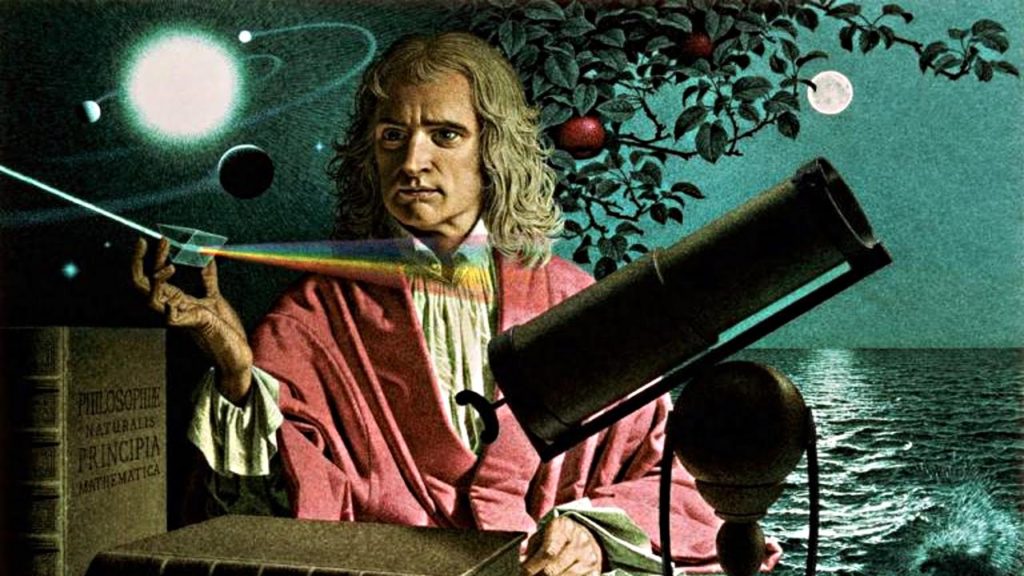



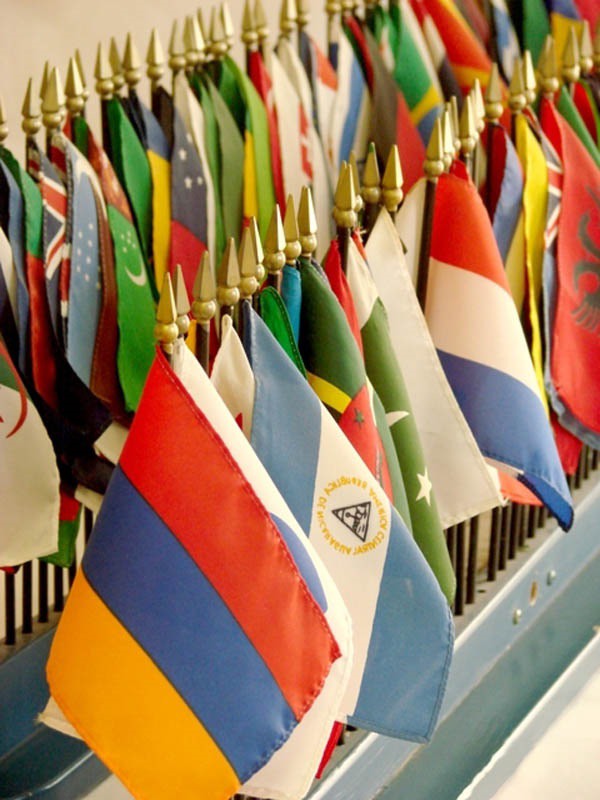
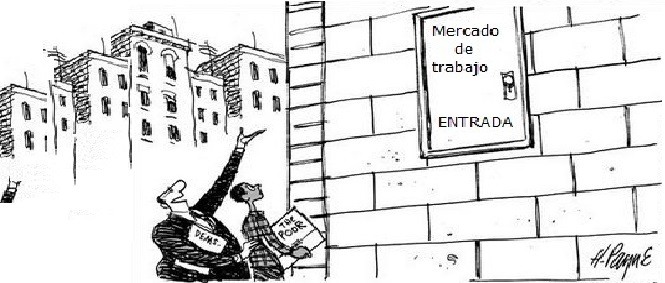






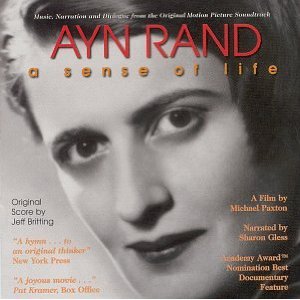
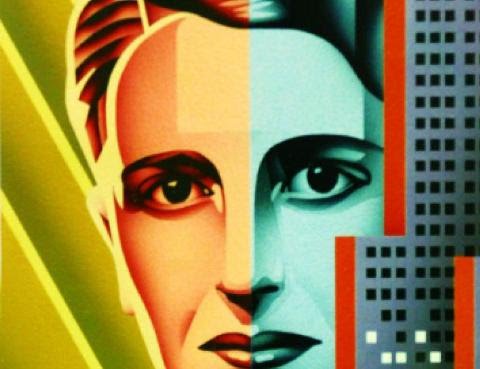

[…] (see interview in English here) […]